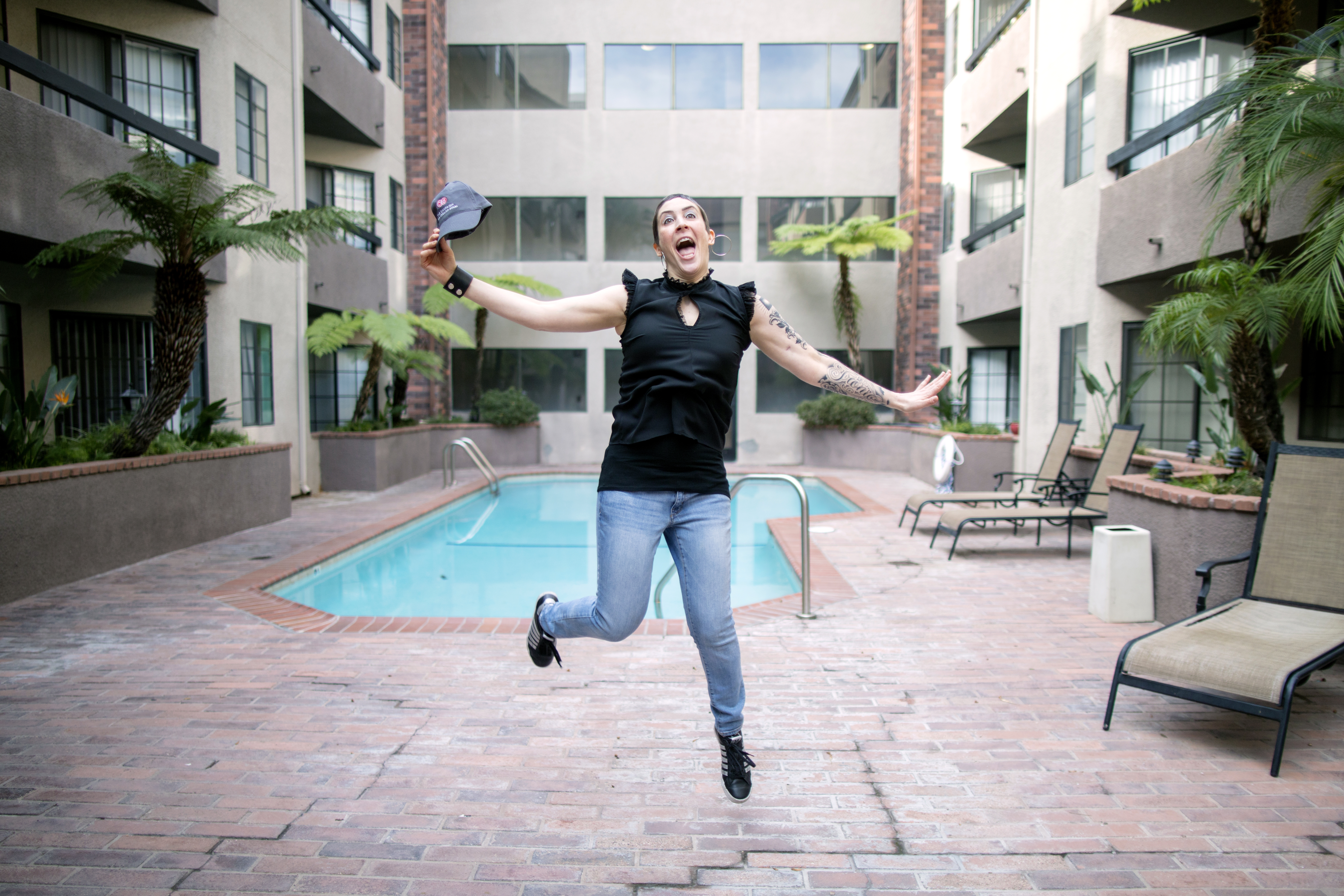As quarantine continues to disrupt every facet of our lives, it seems like we’re constantly course-correcting to accommodate new mandates, new fears, new rules, and (in my case) new pairs of sweatpants to make room for perpetual banana-bread-belly.
Among the revolving-door of emotions, sleeplessness, and level of motivation to get stuff done is the desire (or lack thereof) to exercise. Some days I just can’t escape my comfy indent in the couch where the cushions conformed to my tush. Other days I feel like I could run a marathon. (But let’s be honest, my knee would shatter after two miles.)
Last week, my girlfriend and I had a lovely chat and griped about the current state of the world. She mentioned that her workouts really needed a boost, and most days she only mustered up a thirty-minute walk.
“That’s OK,” I assured her, “because anything is better than nothing. Literally. ANY-thing is better than NO-thing.”
She paused. “That’s brilliant.”
Maybe not brilliant, but definitely true. The concept occurred to me two years ago, in the midst of chemo treatments.
On that particular day, I slogged through a super slow treadmill walk, the lethargic pace grating my nerves. My brain urged me to get in some sprints, but my muscles felt heavy, weak, and depleted. Just a couple of months prior, I could comfortably jog with powerful bursts of intervals. But that day, I was at the mercy of chemo, exhaustion, and frustration.
I shook my head and turned up the ‘80s hair metal in my headphones. I stared at the sun’s reflection on the windows lining the walls of my gym.
And I realized:
Anything is better than nothing. ANY-thing is better than NO-thing.
Even this tortuously slow walk is something. Staying home would mean I did nothing. Coming to the gym, and doing ANYTHING is better than not walking at all. If I kept coming back, eventually the walks would turn into runs. And eventually, they did.
Now, a year into my post-chemo/ post-cancer life, the ideology still applies. Exercise, writing, content creation, career moves – they all benefit from long-term consistency over short-term intensity. Little by little, your everyday efforts add up and make overwhelming goals feel more palatable and attainable.
Think about a puzzle. Individually, one piece may seem insignificant, but when you put all those small components together, you’ve got a masterpiece. You can see how each part serves a purpose in the bigger picture.
Now, if you’ll excuse me, I need to work on my everyday efforts of eating quarantine banana bread.


